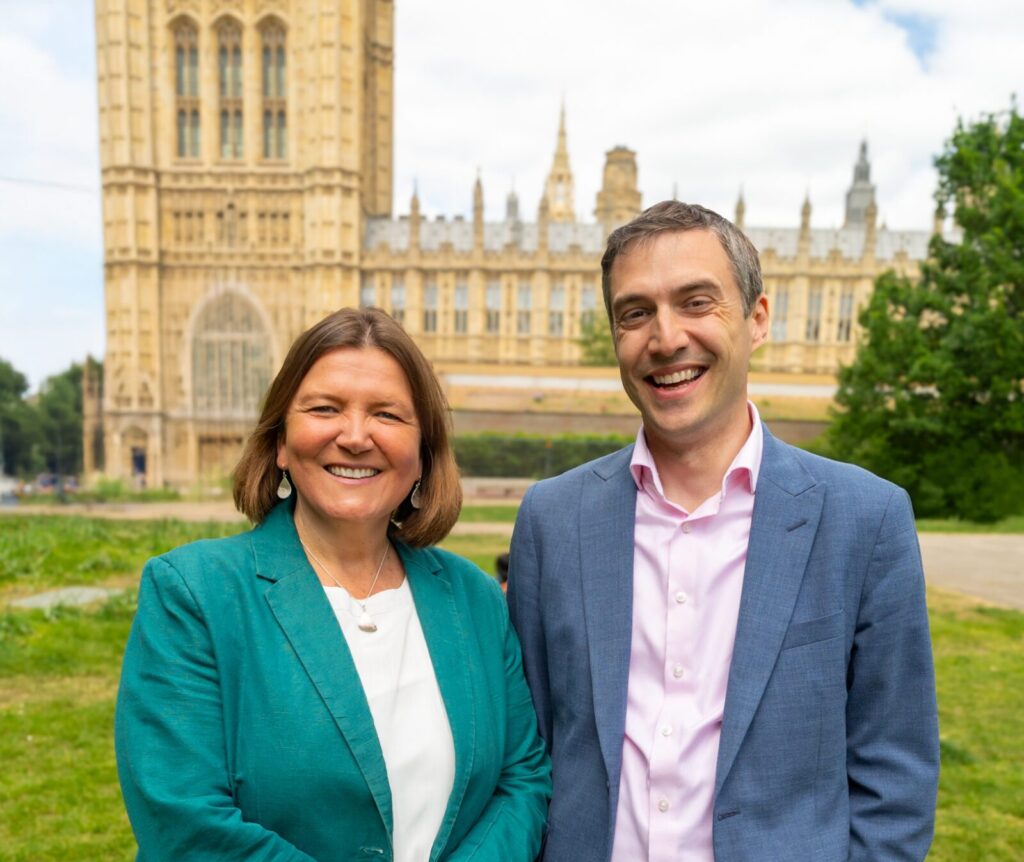Q) Why should Green Party members vote for you and Adrian to lead the party?
We’ve both proven we’ve got what it takes to win big for the Greens.
Adrian is a key architect of the most successful period in our Party’s electoral history, in which we doubled our councillor numbers and quadrupled our MPs. We both won seats we were told we could never win, and I overturned a huge majority with a 33 per cent swing.
We did this by reaching out to voters in every type of community, showing them something better to believe in while holding fast to the strong Green values that have guided us throughout our lives.
There’s now a historic opportunity to build on that phenomenal growth and turn the Greens into a pivotal force in British politics after the next Election. And we’re very serious about doing that.
Q) Former leader, Caroline Lucas, has said the next leader must come from within the team of MPs. Is that a message you would say to Green members who are interested in Zack Polanski at the moment and, if so, why do you think that matters?
Yes, it’s really important that our leaders are MPs – especially now we have a record number of MPs! When Caroline was the sole Green MP, it was tough to combine a very heavy burden of parliamentary work with the other duties that come with party leadership.
But she was still widely perceived as the Leader of the Party, even when she wasn’t. That’s because voters expect party leaders to have an electoral mandate behind them, and with it, a voice on the national stage and at the heart of politics.
It’s very possible that the Greens could be negotiating for transformational change in a hung Parliament after the next Election. For that to become a reality, our leadership will need to be at Westminster, leading those negotiations as skilled and experienced MPs.
Q) One of Polanski’s main offerings is to turn the Green Party into an ‘eco-populism’ mass movement to match the appeal of Reform UK and reach supportive voters who don’t hear the Greens’ message. Is that something you would look to do as well?
We wouldn’t just look to do it – we are already doing it, as our wins against all the odds showed last year! We absolutely want to strengthen the Party’s comms to make sure the Green message is making maximum impact nationally. But Farage’s brand of slippery, ego-driven populism is not something that fits with the Green Party’s ethos or that we should try to emulate.
We will never outshout Reform, but we can outshine them. And we do that by being true to our authentic selves, totally rooted in our values and in the principled Green approach that has won the Party unprecedented and sustained success in recent years.
We are and always will be very different from Reform – we’re not a vehicle for one man’s ego, and we don’t have a tame TV station and billionaire backers.
We have something better: strong democratic values, an amazing team of dedicated and skilled campaigners across the whole country, and history on our side.
We know how to win voters over – that’s what’s won us record numbers of councillors and MPs, and we know we can win transformationally in the same way in future elections.
And, just as importantly, when Greens win power, we use it for the public good. That’s what builds trust among voters, and that’s why we’re confident that we are the true, principled alternative for the huge numbers of people who are understandably completely disillusioned with politics as usual.
Q) You’ve spoken about ‘calm and credible’ leadership. How do you define credibility in today’s political climate, and is this more important than media profile?
One key aspect of credibility is authenticity. Distrust in slick rhetoric and promises of magical solutions is now running very deep, but voters tend to place a high value on politicians who remain true to their values and communicate these with clarity and compassion. That’s one reason Caroline Lucas is so widely liked, and she helped define what calm and credible leadership means in practice.
We don’t see this as being in conflict with media profile. We’re both confident media performers, and that confidence comes from expressing what we truly believe.
Q) Under your leadership, how should the Green Party position itself in relation to Labour – as a partner, a challenger, or something else entirely?
We’re challenging Labour every day of the week on its shameful failure to deliver the meaningful change people thought they were voting for. Labour has let the country down in so many ways, with its callous and destructive austerity policies that are almost indistinguishable from those of the Tories, its assault on key protections for the natural world, and now also with its dangerously inflammatory anti-migrant rhetoric.
There are many decent people in Labour, and we’re happy to work with them constructively in Parliament where we agree. But we wonder how much longer these people will be able to stay within their own Party. Some would be much happier in the Green Party.
Q) How do you respond to concerns that voting Green risks splitting the progressive vote and helping Reform UK?
Voters have good reason to question whether Labour can still be seen as a progressive party. We’re offering a credible alternative to voters who are hungry for real change, and at the local elections, Green candidates often beat Reform into second place.
“Don’t vote for what you believe in or the Party you most dislike might win,” was a scare tactic that worked while the two-party duopoly still dominated British politics. But that era is over – and this means that the Green Party now has everything to play for.
Zak Polanski was also invited to interview.

